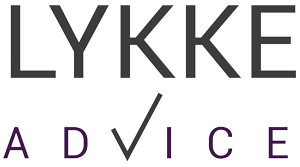Last Wednesday, President Ursula von der Leyen announced her plans for the brand-new European Health Response and preparedness Authority (HERA) during her State of the European Union speech in front of the European Parliament. That was about twenty-four hours before VP Margaritis Schinas, together with Commissioners Stella Kyriakides and Thierry Breton, unveiled the actual proposal in detail.
While this was awaited as a milestone in the path towards a European Health Union, commentators remained mostly unimpressed by the Commission proposal. Anticipated for months as the “BARDA-like” agency that would fix EU health preparedness shortcomings, HERA’s design was dismissed by many as falling short of the initial ambitions of the Commission. VP Schinas himself mentioned during the presentation that the Commission “did not want to raise expectations.” HERA would not be “a game-changer or […] a big booster,” but will still provide added value.
Whether it is because of members states’ fears of excessive interference in their national prerogatives, or because of the risk of creating overlapping or duplicate competence among EU agencies, HERA turned out to be an authority sitting within the Berlaymont instead of a full-fledged agency.
What’s in it?
While frowns of disappointment may seem legitimate, HERA will rapidly become a reality, and so will the “added value” Schinas talks about. In essence, HERA will formalise the practices developed during this last year and a half of pandemic, when the impact of the pandemic required the EU to use all of its creativity to overcome the limited powers in the field of health. For instance, HERA will help the roll out of the EU FAB, which identifies to identify “ever-warm” production facilities to be activated in case of need. HERA will also allow for the ad hoc activation of the Emergency Support Instrument (ESI) in case of health crisis – the financial tool that allowed the rapid development and acquisition of COVID-19 vaccines.
HERA’s mission is to strengthen Europe’s ability to prevent, detect, and rapidly respond to cross-border health emergencies. In pursuing these objectives, HERA will have a number of tasks directly impacting the development, manufacturing, and procurement of medical countermeasures. These tasks range from vaccines to treatments, PPEs and so on. For instance, through the horizon scanning of health threats, HERA will point the direction in which the pharmaceutical industry could or should focus its R&D investments. Through the use of joint procurement and stockpiling, it can open lucrative business opportunities for companies, small and large. Last but not least, HERA will analyse the bottlenecks in the European pharma supply chain. This opens up unprecedented windows for market operators to highlight their strengths and weaknesses and obtain the necessary support to bring their products from lab to market.
HERA’s firepower will count on a grand total of €30 billion: a dedicated budget of €6 billion between 2022-27 – slightly above 1 billion/year – with another 24 billion coming from already existing programmes. These include EU4Health, the EU Civil Protection Mechanism, REACT-EU, the Recovery and Resilience facility. On top of that, 20 billion from national coffers will be used for projects aimed to improve national preparedness.
With HERA, the Commission will streamline under one single strategic approach all health-related efforts in connection to the prevention and response to future cross-border health threats. As it happened with the HERA Incubator to fight SARS-CoV-2 variants, over the next weeks and months the details of the budget breakdown will be defined, and we will see how the Commission’s strategic priorities will be directly reflected in the way EU funds will be used to advance HERA’s mission.
New opportunities
All in all, 50 billion dedicated to improving the resilience of the EU against health crisis. So, where’s the catch? In the Commission’s plans, the mechanisms around HERA’s governance are centred around the European Commission and the member states. This leaves the European Parliament mostly out of the picture. Critical reactions from the hemicycle were rapid and clear, mostly fuelled by the fear that the EP will be marginalised to the limited role to it had in the first phases of the pandemic.
Lykke Advice can help you with this. Our services can support you in setting up and expanding your network in Brussels, to stay up to speed with the future initiatives under HERA and be ahead of the curve.


